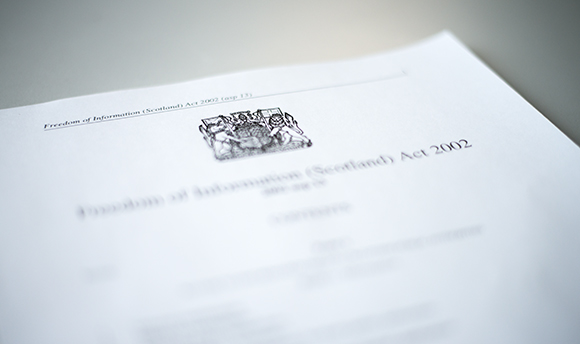Academic collaboration - types of collaboration
Types of collaboration
3.1 A Collaborative Programme is a programme designed and/or delivered and/or assessed by the staff of Queen Margaret University in partnership with one or more institution. A partner institution is the institution or other body with which Queen Margaret University enters into an agreement to collaborate. Note: the terms partner and partnership are not used in these regulations with their narrower legal definition.
3.2 There are four broad types of formal collaborative programme: validated, franchise, joint/double/multiple awards and dual awards. Additionally, articulation agreements may be made allowing entry to a QMU programme from a partner programme. A summary table providing guidance on validation and franchise arrangements and joint awards is provided below. Note that some awards may contain a mixture of franchised elements and elements developed by the partner organisation and may not fall neatly into either the category of franchised or validated programme. Similarly, awards made jointly with other institutions with degree awarding powers may take a wide variety of forms. The table below indicates how responsibilities are normally distributed between partners in different types of agreement. The definitions reflect terminology used within UK higher education. They do not preclude alternative or bespoke arrangements.
Collaborative Programmes
| Validated | Franchised | Joint / Double / Multiple degree* | Dual award | Awarding School |
|---|---|---|---|---|
| Award designed by |
Partner OR QMU and Partner |
QMU | QMU and Partner | QMU and Partner |
| Programme validated by | QMU | QMU | QMU and Partner | QMU and Partner |
| Students admitted by |
Partner (with advice from QMU) QMU retains the right to make final decision |
Partner (with advice from QMU) QMU retains the right to make final decision |
QMU and / or Partner (may be delegated to Partner) | QMU and Partner (joint decision) |
| Teaching provided by |
Partner OR QMU and Partner |
Partner | Partner and / or QMU | QMU and Partner |
| Award made by | QMU | QMU | QMU and Partner | QMU OR Partner OR both (separate awards) |
* For these awards the partner institution(s) must have degree awarding powers in their own right.
3.3 A Franchise arrangement is the process by which Queen Margaret University authorises the provision of the whole or part of one or more of its own approved programmes by a partner institution. In doing so, Queen Margaret University retains overall control of the programme’s content, delivery, assessment and quality assurance arrangements. The approval of such programmes will be conducted through the University’s established procedures and a Memorandum of Agreement will be required. If a complete award is franchised, changes to the parent programme made at the point of review, or approved by the School Academic Board between review events, must be reflected in the franchise version. If individual modules are franchised, changes in the parent modules approved by the School Academic Board will normally be reflected in changes to the franchise version.
3.4 A Validated programme is developed and delivered by the staff of a partner institution. Whilst some aspects of programme management may be delegated to the partner institution, Queen Margaret University retains ultimate responsibility for the standard of awards made in its name. The validated programme will normally be in a subject linked to Queen Margaret University’s own portfolio but the partner may provide specialist expertise. The approval of such programmes will be conducted through Queen Margaret University’s established procedures. The award will be conferred by Queen Margaret University and a Memorandum of Agreement will be required.
3.5 A Joint award is a programme designed and/or delivered and/or assessed by the staff of Queen Margaret University and one or more partner institutions, where each of the partners has the power to make the award in question. The approval of such programmes will be conducted through the established procedures of the University and the partner institution(s). The programme will be subject to the quality assurance and quality control process of Queen Margaret University and the partner institution(s). The award will normally be jointly conferred by Queen Margaret University and the partner institution(s). A Memorandum of Agreement will be required. In a Joint award a single certificate is issued to successful graduates, bearing the crests of each partner. In some cases, there may be legal or regulatory barriers to the issue of a single certificate. In this case each partner will issue its own certificate but the wording on the certificates will cross-refer to the other partner(s) in order to make clear the nature of the collaborative arrangement. This is normally known as a Double award or (if three or more partners are involved) a Multiple award. See Section 14 for more information.
3.6 A Dual Award normally refers to an arrangement in which the student studies partly at each partner institution and uses the credits from one partner’s programme towards the other partner’s award (or from both awards towards the other). Each degree-awarding body is responsible for its own award. Students who successfully complete the two programmes receive separate certificates, one for each of the qualifications being granted by each of the awarding bodies involved. A distinguishing feature of this type of arrangement is that it is possible for the student to meet the requirements for one award without meeting the requirements for the other. By combining related awards in this way a student may achieve two certificates in a shorter period of time than if each were studied separately. See Section 14 for more information.
3.7 In some cases, an institution with degree awarding powers may wish to have its award validated by Queen Margaret University as well. This may make the qualification more attractive to potential students. In this case, the award may be delivered mainly or solely by the partner. It may include elements that are required in that country’s education system but which are not required for the QMU award. Graduates would receive two separate certificates as in a Double Award.
3.8 Articulation is a particular form of formal credit-rating and transfer agreement between Queen Margaret University and another institution, and will involve Queen Margaret University recognising and granting specific credit or advanced standing to applicants from a named programme of study pursued in the other institution. For example, an HNC at College A may give direct access to Year 2 of a related Queen Margaret University undergraduate programme. Once an articulation agreement is in place, applicants do not require an individual assessment of Recognition of Prior Learning. An articulation agreement will be required.
3.9 The following procedures apply in full to franchised, joint, dual and validated programmes that result in an award in the name of Queen Margaret University. There will be an element of discretion in terms of their application to articulation agreements.
3.10 The following procedures are an extension of, and should be read in conjunction with, those established in the Programme development, monitoring and review chapter. Collaborative arrangements require that those procedures be expanded upon to allow for full consideration of the proposed collaborative link.


